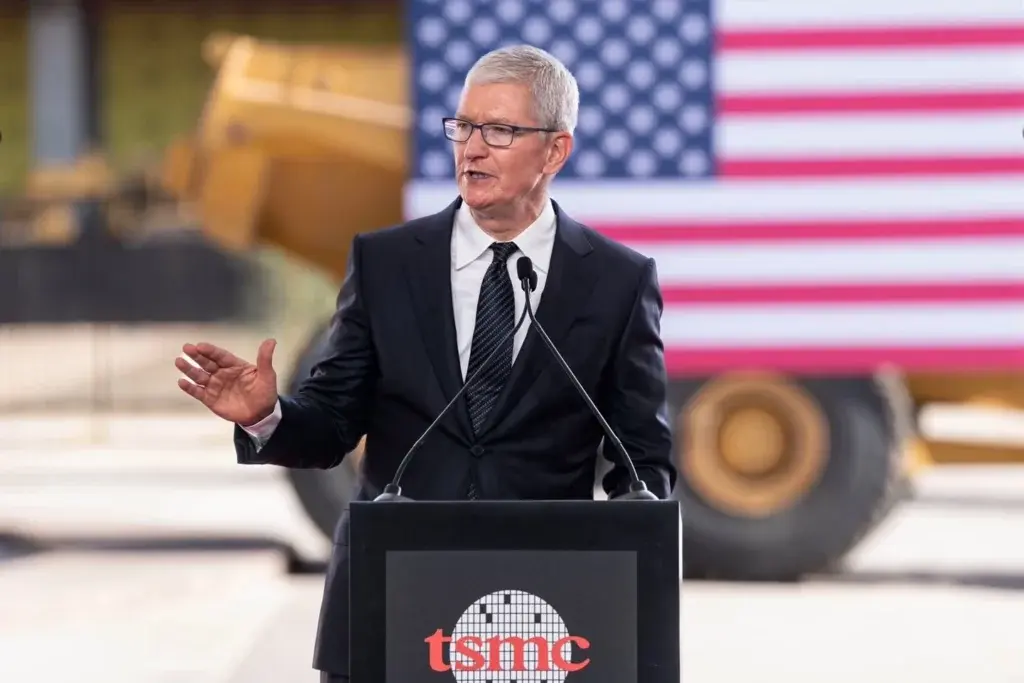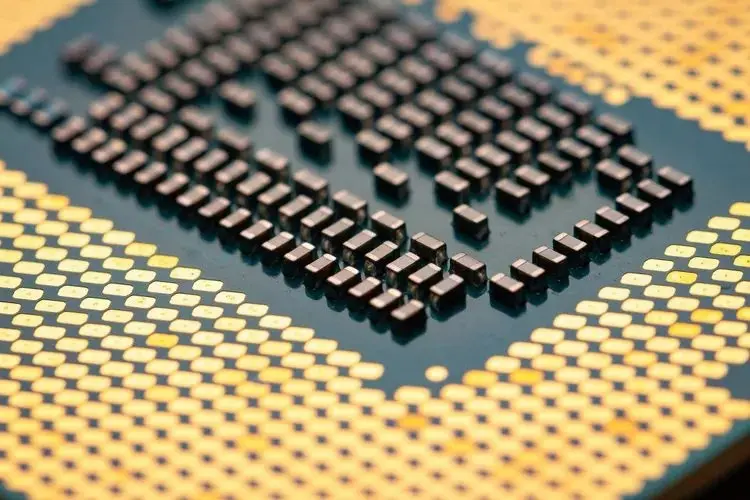Taiwanese chip maker, TSMC, is one of the top chip makers in the world. Almost all major mobile phone brands rely on chips that use TSMC’s manufacturing process. According to Lifewire, Apple chip partner TSMC recently held its first “welcome” event at its new plant in Arizona, USA. Apple’s CEO, Tim Cook attended the event in person. Intel’s CEO also congratulated TSMC via a Tweet. Considering that TSMC is Apple’s major partner, there are reports that Apple will start major production of iPhones in the U.S. However, TSMC’s entry into the U.S. does not mean Apple will produce iPhones in the United States. In fact, even the chips that the TSMC Arizona plant will produce will not be used in iPhones.

Tim Cook and US president, Joe Biden had a tour of TSMC’s new Arizona factory. The factor will make chips for Apple but not for the M-series and A-series for Macs and iPhones chips. The facility was completed earlier this year and production is scheduled to begin in 2024. The current Phase 1 project has cost $12 billion. But it’s also not advanced enough to make Apple’s processors.
Industry analyst, Ben Thompson wrote on his Stratechery blog, “Simply put, even if TSMC’s new plant can start mass production in 2024, it is still two years behind the 4nm process production. And if the factory plans to produce a 5nm process, it will actually be 4 years behind”. At the moment, Apple’s iPhones already use 4nm chips thus, the factor is not ready to make iPhone chips.
Apple chips are far ahead
Apple Silicon is far ahead of the competition with its incredible power and low power consumption. It depends on several factors, two of which are design (Apple’s chips are optimized to run only Apple software, which makes the design more powerful and efficient) and chip craftsmanship.

The information currently released by TSMC’s new plant in Arizona shows that it will use a 5nm or 4nm process, which sounds very good. However, by 2024, Apple’s M-series and A-series will have to be upgraded to a 3nm process.
In other words, TSMC’s Arizona plant will not produce iPhone chips, at least for now. It could make other chips for Apple’s devices instead, or it could make older A-series chips. Under Tim Cook, Apple has tended to sell older devices for years to keep manufacturing costs down. Additionally, Apple uses older A-series chips in everything from the Studio Display to the Apple TV.
It is important to note that Apple does not produce iPhones in the U.S. at the moment. While Apple has a lot of suppliers in the U.S., it does not assemble its iPhones in the U.S. If it attempts to do that, the price of the device will be much more expensive. This is because labour rates are no less than 10 times the rates in China. This situation is not exclusive to iPhones, there is almost no mobile phone assembled in the U.S. for the same reason. Thus, for those that are waiting for a “Made in US” iPhone, the wait continues. This will likely not happen for a long time. With Apple facing some troubles in China, the company is now considering Vietnam or even India for some of its production. The U.S. is not in its plans.
Apple iPhone production to return to normal this month
The production of new iPhones has been seriously affected due to the troubles in Apple’s biggest factory (Foxconn factory) in China. In fact, there are reports that Apple’s end of year sales will be greatly affected because of low supply. This period is usually a good sales period for Apple. Hon Hai Foxconn, a brand partner of Apple is in charge of the iPhone 14 Pro and Pro Max. According to Reuters, Foxconn expects its main iPhone factory to resume full production around the end of December or early January.

Taiwan’s “Economic Daily” now reports a Citigroup research which claims that the management of Foxconn’s parent company, Hon Hai held several investor meetings in the United States from December 5 to 8. According to the meeting, with the adjustment of Zhengzhou’s epidemic prevention policy, Hon Hai aims to resume normal production of iPhones in December. Citigroup said that Hon Hai’s profit in the fourth quarter of this year may be affected by cost increases. Also, the management expects to gradually recover costs after consulting with customers.
Citi points out that demand for high-end mobile phones iPhone 14 Pro / Pro Max remains strong. Despite the production short fall, there are no adjustments in the order forecast. However, there may be a strong delay in shipment until the first quarter of next year. This is because production is clearly difficult to fully catch up with the demand for the fourth quarter of 2022 need.
Over 10 million iPhones awaiting production
Earlier this month, popular Apple analyst, Ming-Chi Kuo claims that the Zhengzhou factory currently has a production gap of more than 12 million iPhones. Since November, the production capacity of the Shenzhen Guanlan factory has increased. This is to make up for the production capacity of the Zhengzhou factory. He points out that the number of employees in the Zhengzhou factory is now at 40% to 50% of the full capacity period.
Despite the low number of staff, the production capacity is somehow improving. However, the factory is yet to make a full recovery. It is expected that the overall capacity utilization rate of the Zhengzhou factory will double to about 60% in December.





